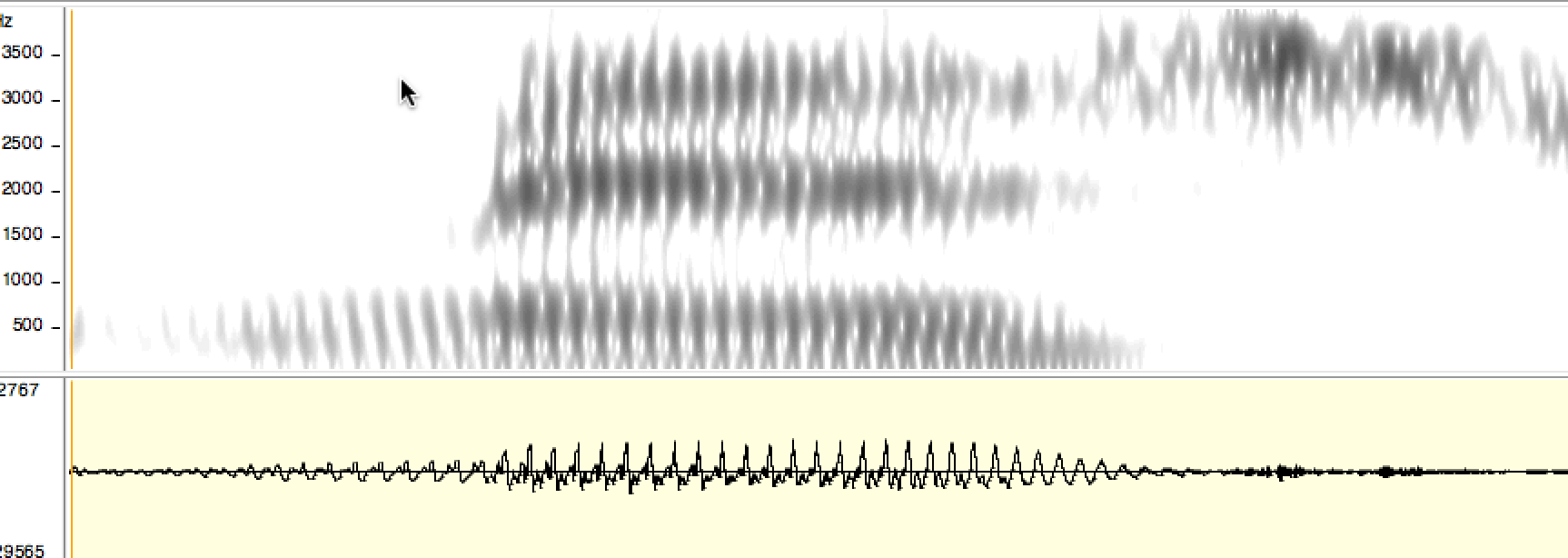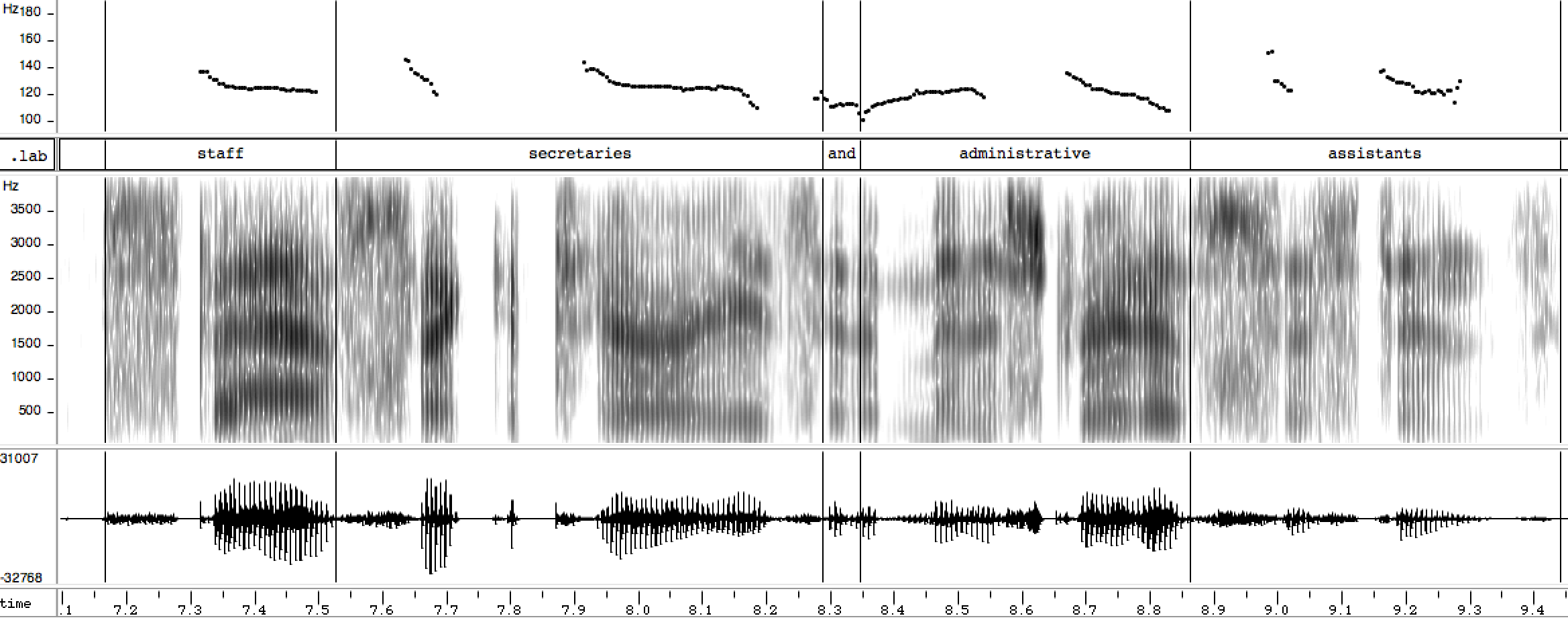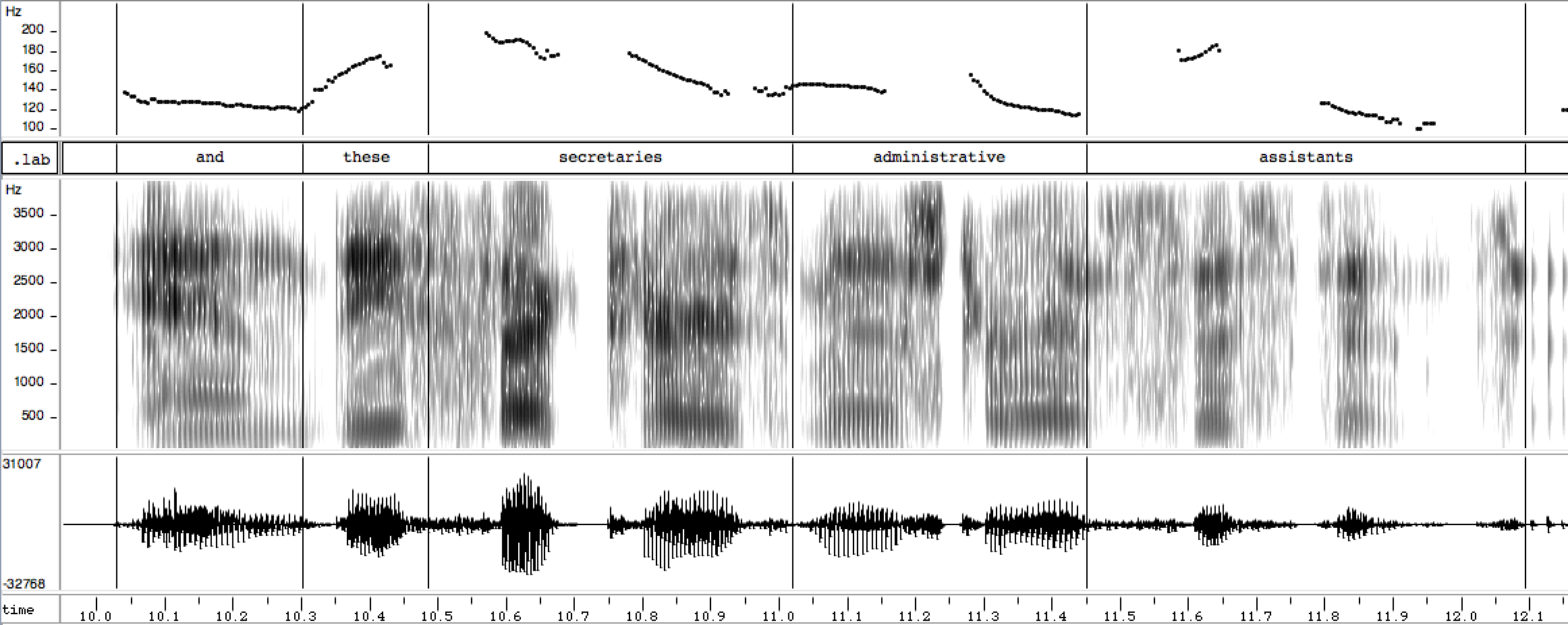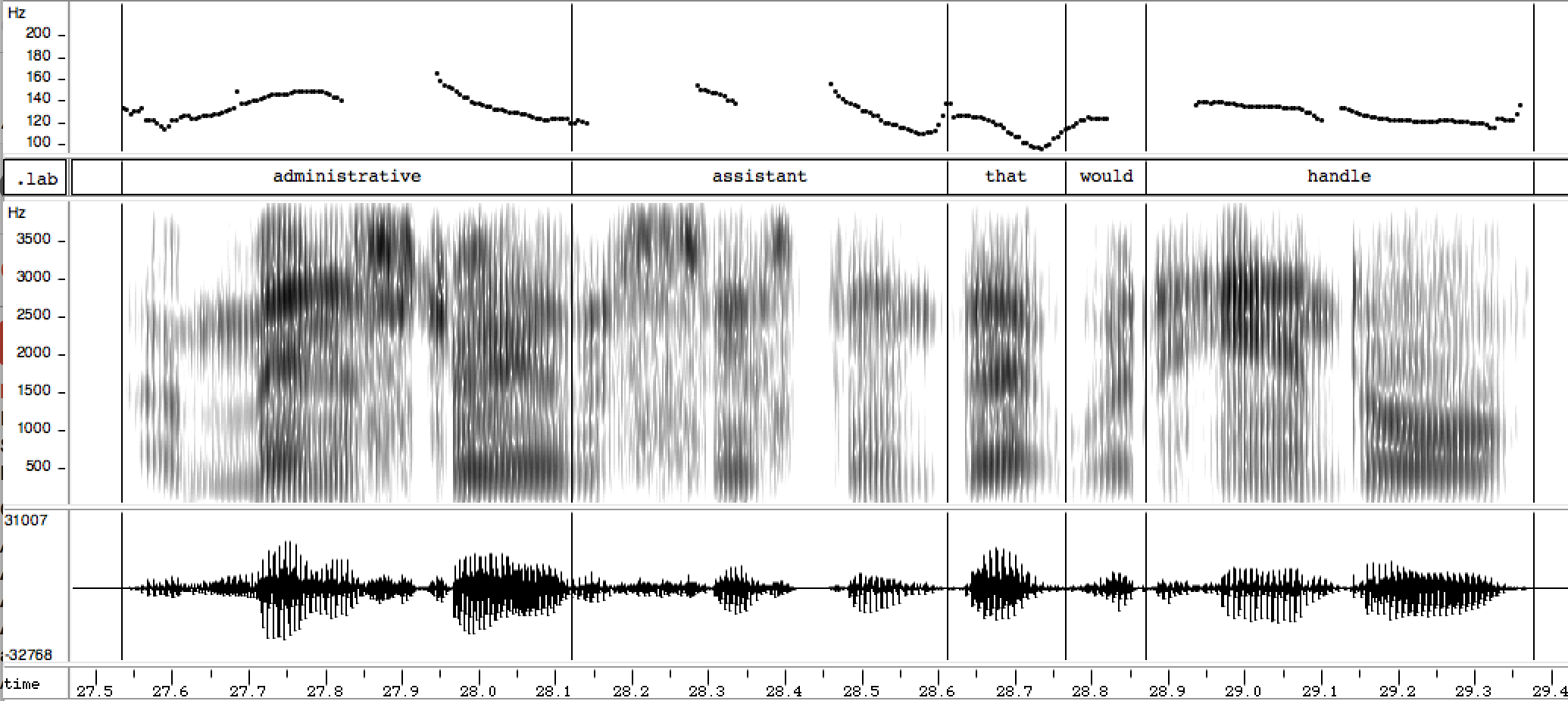Administrative reductions
« previous post | next post »
A couple of days ago, I heard an interesting talk by Juliet Stanton, who proposed that variation in stress on the -at- in (English) words in -ative depends in a gradient way on the total duration of stressless material between -at- and the word's earlier main stress. Thus -at- stressing should (and does) become more frequent through a series like palliative, speculative, investigative, legislative.
It occurred to me to wonder whether there might be an effect in the other direction as well. That is, in a word like administrative (where dictionaries and my intuition agree that /ədˈmɪnᵻstrətɪv/ and /ədˈmɪnəˌstreɪdɪv/ are both possible), perhaps the phonetic duration of the intervening sequence would vary according to Stanton's principle.
I chose administrative for a test because a quick check of the LDC's published collection of conversational telephone speech turned up more than 70 instances of that word. But the OED turns out to be right that the version with stressed -at- predominates in the U.S. — 70 out of 73 instances in this set. And there were some other kinds of pronunciation variation — reductions — that make my idea hard to test in any case.
However, those reductions themselves are worth a look.
One common issue is that the intervocalic /n/ in administrative often loses its closure, leaving only a single phonetic syllable with a nasalized vowel [mɪ̃] as the phonetic residue of the two syllables for which the OED gives the phonemic transcription /mɪnə/. An example:
The phonemic restoration effect tends to make us native speakers believe that we hear the full form, so here's just the audio corresponding to the nominally 2.5-syllable sequence /mɪnəs/:
And the waveform and spectrogram:
There are other (and more extreme) forms of reduction as well, especially in the case of frequent and/or recent words and phrases. For example, consider this passage:
right well see we have di[fferent]- we have marketing people and then we have
uh financial planners
and uh then we have uh staff secretaries and administrative assistants
and these secretaries and administrative assistants um
you know th[at]- if we don't have their cooperation and they're not
participating in the profit of the company they-
they can get very dissatisfied very quickly
and so uh we're thinking about paying them ((just)) a percentage on salary,
paying them a percentage on the business they handle so
((a)) administrative assistant that would handle
two million dollars worth of business is a lot more valuable
than a person that handles a hundred thousand dollars worth of business
Here's the first instance of administrative assistant:
And just the audio for administrative, which is pretty much what the OED says Americans should pronounce it (though note that the second syllable of secretaries is basically just [kə], and the first syllable of assistants is elided):
Here's the second occurrent of administrative assistants in context:
and these secretaries and administrative assistants
This time, the second syllable of secretaries, the first and final syllables of administrative, and the first syllable of assistants are all elided, and now administrative become just [ˈmɪ̃.strɪv]
Here's the third occurrence in context:
an administrative assistant that would handle
It's hard to know how to parse the initial unstressed syllable, but if we decide that it's a definite article, then we've got something like [ˈmɪ.nɪˌstre.ɪv] as the pronunciation of administrative in this case:
If we could see what the tongue is doing, the difference between presence and absence of lenited /n/ and /t/ in administrative would presumably be a gradient rather than a categorical one — but all of this is a nice illustration of the phonetic reduction processes that lead to restructuring of the phonology and the lexicon across a few hundred years of language change.




Bob Ladd said,
December 10, 2017 @ 6:33 am
I think something similar to the effect Stanton discusses for -ative works for -ory as well. Consider contradictory, explanatory, ambulatory. However, it's hard for me to be sure about my intuitions here, because of long exposure to British English, where stretches of post-tonic weak syllables are tolerated better than in American English. I could imagine a native British speaker saying ambulatory with [-tri] at the end, whereas for me it really has to be [-ˌtori].
The substantial gradient reductions Mark documents in the post are definitely worth knowing about, but it's also interesting ([ˈɪntrᵻstɪŋ] or [ˈɪn(t)əˌrɛstɪŋ]?) that some of these differences remain quasi-categorical and can characterize different regional or social varieties.
Athel Cornish-Bowden said,
December 10, 2017 @ 6:53 am
The only word mentioned in which I stress the at is "administrative" (and only sometimes, probably less than a quarter of the time). When I do it's not /ədˈmɪnəˌstreɪdɪv/ but /ədˈmɪnəˌstreɪtɪv/
[(myl) The OED gives the pronunciations
Brit. /ədˈmɪnᵻstrətɪv/, U.S. /ədˈmɪnəˌstreɪdɪv/,
obviously assuming American flapping and voicing of the intervocalic /t/ in -ative. But from a scientific point of view, at least, we're well beyond the point where the International Phonetic Alphabet is a useful way to represent phonetic variation.]
Jonathan said,
December 10, 2017 @ 11:16 am
All I know is that if you pronounce these '-at-'s like the '-at' in 'cat', and at the same time put a heavy stress on them, you end up sounding like Dr. Nick from The Simpsons.
Jerry Friedman said,
December 10, 2017 @ 10:06 pm
On Juliet Stanton's conjecture, what about "imitative" and "meditative"? They rhyme with "native" in American English, but I can't see them having more time between the accent and the "a" than "speculative".
Both AHD and M-W give the pronunciation rhyming with "native" as the first for "palliative", but I don't think I've ever heard anyone say that. Not that I've heard the word all that often.
Juliet Stanton said,
December 11, 2017 @ 9:25 am
@Bob Ladd: ah, I hadn't thought about –ory in this vein, thanks! (And re dialectal differences, data from the OED suggest that American English speakers are generally more likely to stress -at- in –ative forms than are British English speakers; Paul de Lacy tells me that NZ English does something different altogether. It's interesting that this should vary so much when other things about –ative words, i.e. where main stress falls, are fairly consistent across dialects.)
@Jerry Friedman: the hypothesis is that stressless strings containing an obstruent are (all else being equal) longer than stressless strings containing a sonorant – either because the sonorants are shorter than the obstruents, or because the neighboring vowels are more compressible (see e.g. Katz 2012, JPhon), or some combination. I've done enough work to convince myself that this is a plausible hypothesis, but it's still very much work in progress. So while the prediction is that the stressless material in speculative should be longer than the stressless material in imitative/meditative (where speculative has an L, imitative/meditative have Ts), I haven't specifically looked at this comparison yet. (And I agree, palliative sounds odd with penult stress.)
Jerry Friedman said,
December 12, 2017 @ 10:49 am
Juliet Stanton: Thanks for the explanation. I was thinking that "speculative" might be longer because of the diphthong in the second syllable, but I know nothing about the actual duration of such sounds.